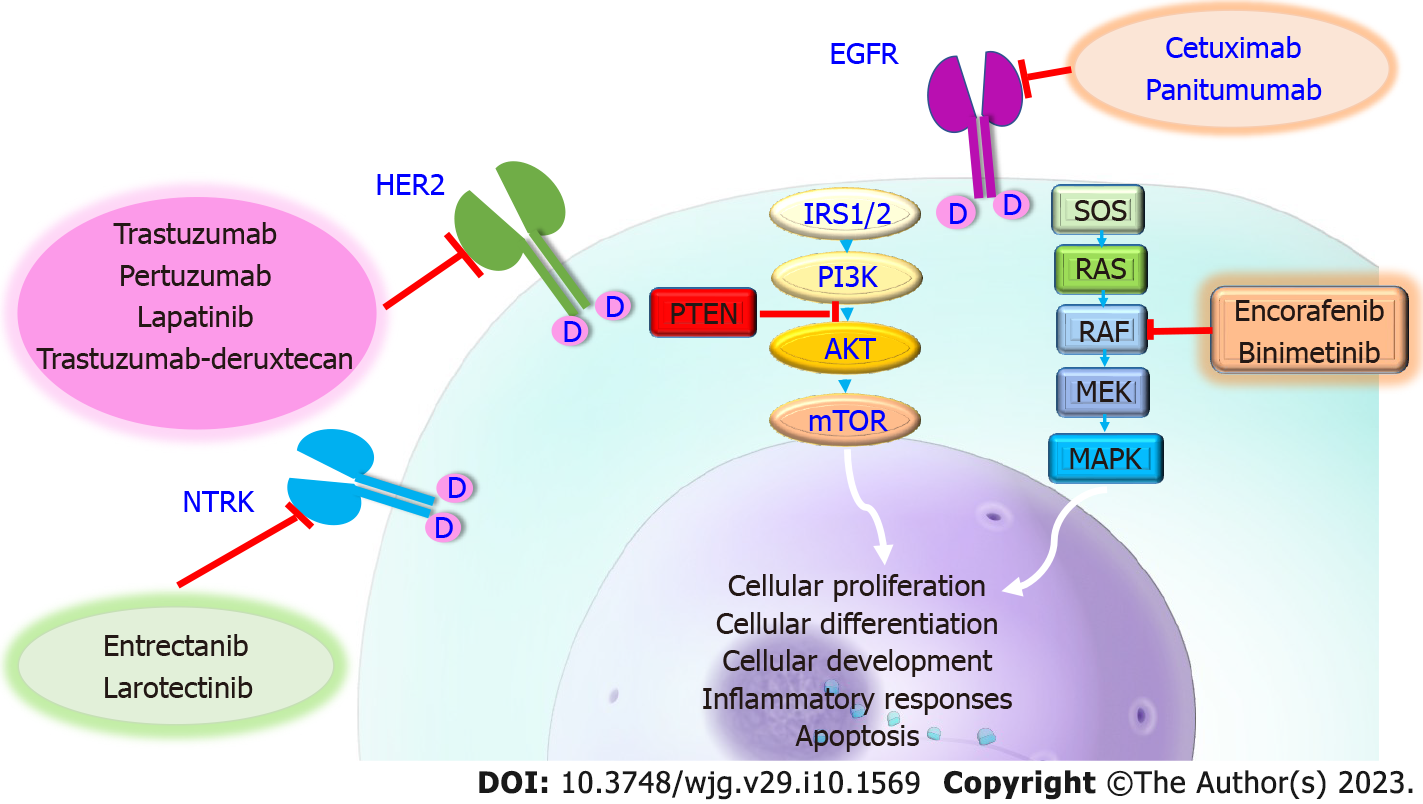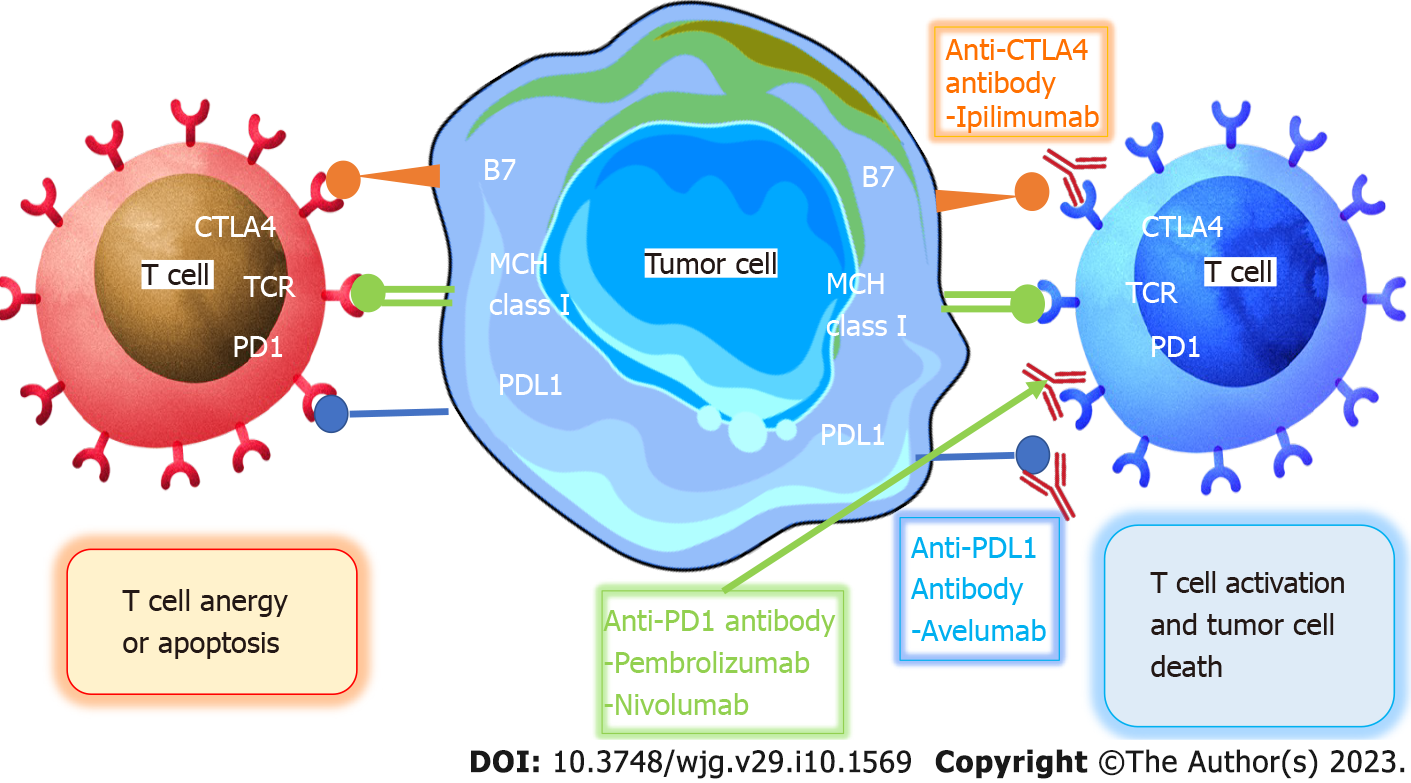Copyright
©The Author(s) 2023.
World J Gastroenterol. Mar 14, 2023; 29(10): 1569-1588
Published online Mar 14, 2023. doi: 10.3748/wjg.v29.i10.1569
Published online Mar 14, 2023. doi: 10.3748/wjg.v29.i10.1569
Figure 1 Three molecular pathways can lead to colorectal cancer.
For colorectal carcinogenesis, three molecular pathways have been proposed: the chromosomal instable or classic pathway, the microsatellite instability pathway, and the serrated pathway. APC: Adenomatous polyposis coli; BRAF: Protein kinase B-Raf; CIMP: CpG island methylator phenotype; KRAS: Kristin rat sarcoma virus.
Figure 2 Targeted therapy for metastatic colorectal cancer.
AKT: Ak strain transforming; D: Down regulation pathway; EGFR: Epidermal growth factor receptor; HER2: Human epidermal growth factor receptor 2; IRS1/2: Insulin receptor substrates 1 or 2; MAPK: Mitogen activated protein kinase; mTOR: Mammalian target of rapamycin; MEK: Mitogen-activated protein kinase kinase; NTRK: Neurotrophic tyrosine receptor kinase; PTEN: Phosphatase and tensin homolog; PI3K: Phosphoinositide 3-kinases; RAF: Rapidly accelerated fibrosarcoma; RAS: Rat sarcoma virus; SOS: Son of sevenless.
Figure 3 Immune check point inhibitors treatment for metastatic colorectal cancer.
CTLA4: Cytotoxic T-lymphocyte-associated protein 4; MHC: Major histocompatibility complex; PD-1: Programmed cell death protein 1; PD-L1: Programmed death-ligand; TCR: T cell receptor.
- Citation: Leowattana W, Leowattana P, Leowattana T. Systemic treatment for metastatic colorectal cancer. World J Gastroenterol 2023; 29(10): 1569-1588
- URL: https://www.wjgnet.com/1007-9327/full/v29/i10/1569.htm
- DOI: https://dx.doi.org/10.3748/wjg.v29.i10.1569











